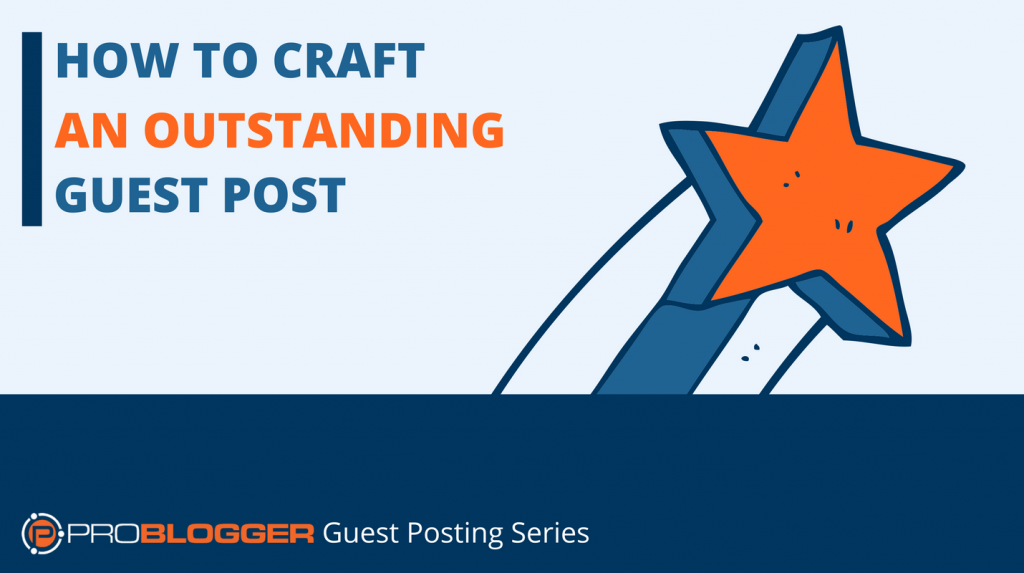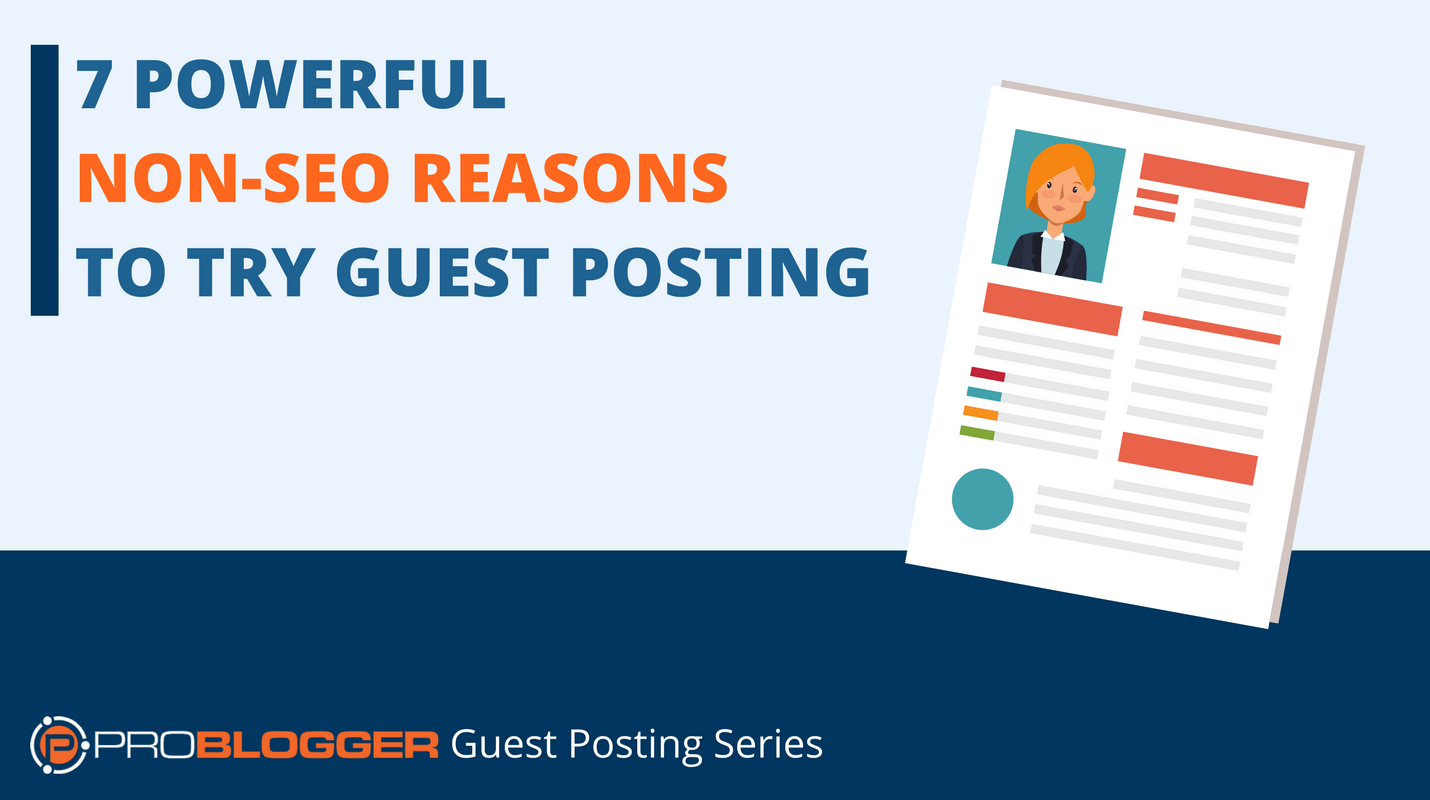Hey there, my name is Darren Rowse. I'm the blogger behind problogger.com, a blog, podcast, events, job board, and a series of ebooks, all designed to help you as a blogger to grow a profitable blog. You can learn more about ProBlogger and all we do over at problogger.com.
Today's episode is episode 201. In it, I want to talk about a key to creating a blog with lots of traffic and profit. It comes from a conversation I had this morning with a new blogger who was asking me about how to create content that will go viral. As I look back on the growth of my own blog, I think it's a really important lesson for bloggers of all stages, good reminders on how to grow a business around your blog and traffic to your blog.
You can find today's show notes with some further listening at the end at problogger.com/podcast/201. Also, join our Facebook group at problogger.com/group. Just wanted to let you know, a bit of a reminder of our events that we've got coming up. If you are in Australia, we do have a limited number of tickets left for our events that are happening at the end of July and the start of August in Melbourne and Brisbane. You can get more information on those events at problogger.com/events.
If you're in America and can get to Dallas, Texas, in October, we've got a great event coming up there. You can find out more information on that event at problogger.com/success. All of those events, Pat Flynn will be joining me and we've got a raft of other amazing speakers happening at all of those events as well. I'll link to each of those pages in our show notes as well.
Let's get into talking about traffic and profit and how to build those things into your blog. This morning, I had a conversation with a new blogger who asked me a question that I do get from time to time. They ask me, "How do you get viral traffic with a blog post?" It's not the first time I've been asked it. I suspect it's not going to be the last time that I'll be asked it. Every time I am asked this question, I find myself wondering whether I should give the answer that the blogger wants to hear or whether I should give them the one that they need to hear.
In this case, I told them the one they needed to hear. But the answer that they really want with that question is for me to reveal some secret to writing highly shareable content. Now, of course there are many techniques that you can use to increase the shareability of your content. I'm going to suggest some further listening on that topic at the end of this podcast. There's nothing at all wrong with writing shareable content and hoping for it to get viral. I actually think you should write some of that type of content but it's not the answer to building a sustainable full time blog with big traffic.
In fact, when you become obsessed with writing just that type of content, it can hurt your blog. The answer that the blogger I talked to today needed to hear is that in most cases, the reason a blog grows into a sustainable business is that they don't have viral content. It's actually not the viral content that helps them to grow that. The key to building a blog with big traffic and big profits is to build it one step at a time. I'm sure there are a few examples around the bloggers who have hit it out of the park with a single blog post, who've had overnight success with one piece of content that goes viral. In fact, I've heard a few of those stories but it's certainly not my experience.
Whilst I've met thousands of full time bloggers over the last 15 years, I'm yet to meet one who got there with a single viral blog post. Full time bloggers rarely have that kind of overnight success. The fastest I've heard about is around for months of working on a blog before someone got to a full time level. I'm sure there are faster examples out there but even that four month example is an exception to the rule. In most cases, blogs with big traffic, significant traffic, it takes years of work to get to that level of blogging one step at a time.
I know some of you who are listening to this podcast are feeling a little bit disappointed right now. We do love to hear those stories of overnight success. We love hearing about things going viral. Those are fun stories. I understand your disappointment. For those of you who've had those moments of going viral, you actually know that they are fun experiences as well. I know this because I remember one of the first times it happened to me.
In the early days of Digital Photography School, I was kind of obsessed with writing viral content. I remember one post going viral. In fact, it was probably one of the first posts that went viral for me. It was January 2007. I just looked up the Google analytics stats a few minutes ago and I hit the jackpot with a post. At that time, my blog was seven months old. I was averaging around 4,000 visitors a day, which wasn't too bad. I'd actually managed to grow my blog relatively quickly to 4,000 visitors a day. That growth was based upon the fact that I'd had a previous photography blog. I was able to bring some readers across from that, I was ranking relatively well in search engines already, and I was bringing in that kind of traffic from search.
But things have begun to plateau at around this 4,000 visitors a day mark. I published a lot of evergreen cornerstone content, which had helped to get to that point, but I wasn't satisfied. I wanted more traffic and so I began to look around at what other sites were doing. I particularly was drawn to social bookmarking sites. At the time, they were huge sites. Today, we see sites like Reddit. Back then, it was site like Digg. They were the big sites that you could get lots of traffic from.
I began to analyze the type of content that was being shared a lot on these sites. I realized there were certain formulas to it. There were certain headlines that did pretty well. There were certain topics that if you write about those, they seem to get shared more. I began to try writing some of that type of content. It was quite different to the kind of content I'd already been publishing on my blog. It was fluffy content. It wasn't overly deep. It wasn't really that helpful. They were listicles. They were top 10 lists. They were posts that were more about controversy than helping people. They had clickbait-y kind of titles and yet I began to write that type of content.
One day, it worked. I remember on this day, early January 2007, I published a post and I woke up one morning and I realized that it had been linked to by a larger blog. A blog called Lifehacker. I'd pitched them the previous day of my post. I'd say, "Here's my post. You might find this interesting. Your readers might find it interesting." And they'd taken the bait. They linked to my post. That link doubled our traffic that particular day. That was fantastic. In some way, I didn't just have 4,000 visitors. I had 8,000 that day. This was just the beginning.
The next day, the post was picked up and linked to on a site called Digg, which was one of the forerunners to Reddit. Things went crazy. Overnight, we went from having 4,000 visitors a day, the next day I had over 100,000 visitors. I remember that day vividly. I sat there at my computer refreshing my site stats over, and over, and over again. I did very little else that particular day. I remember watching the numbers grow 4,000, 8,000, 16,000, 20,000, and continued to grow and grow. It was amazing rush. I felt like I finally hit it big. I've had this success. I finally was going to have a full time income from this particular blog, but it didn't last.
The next day, I woke up expecting to continue to have massive traffic to my blog, but it was all gone. The next day, we had 4,100 visitors. I was so disappointed. The rush of traffic was amazing. It was an amazing feeling. It really was. I understand why people want viral content. Believe me. But virtually, none of it ever came back despite my best efforts, despite me trying to get that traffic to go and visit another post, and to sign up for my RSS feed, and to follow me on Twitter, and all these other things that could have happened to help me make it come back. It didn't work.
For the next month, my traffic was flat, 4,000 visitors a day. Sometimes, it went slightly high. Sometimes, it went slightly lower. I got really down about it. I wanted that rush of traffic again. I started to write more posts like the first one, trying to recreate it, but none of them took off. I pitched almost every post I wrote to Lifehacker, hoping that it would trigger another rush of traffic, but they didn't link up again. I tried to game Digg and get my post up to vote it up on Digg but that didn't work either. I became obsessed with trying to go viral again.
For months, that became my number one goal. I wanted to repeat that "success." For me, it felt like it was success but the reality was that it didn't help my blog at all. The result was that for the next few months, I continued to create fluffy content. It was designed to trigger shares but not really to serve my readers.
Now, it did happen again. I did have a few more of those viral days over the coming months, where my traffic would be huge, where I would get to the front page of Digg or another site like, there was one called Delicious back then. It was social bookmarking sites or another big blog would link up. I'd feel on top of the world. I had a successful blog for a day only to find the next day, my traffic was 4,000 visitors a day. I actually looked at my stats the other day and it was flat for month after month after month. There used to have the big spikes and then nothing, 4,000 visitors a day.
This continued on for a long time until I had a realization that 4,000 visitors a day wasn't just a number. It wasn't just a number. 4,000, it was 4,000 people a day, 4,000 human beings have landed on my site each day and that wasn't something to be depressed about. That was actually something to celebrate. But the realization that I also had was that when they were landing on my site, they were actually finding fluffy content. They were finding formulaic headlines, they were finding content that was designed to be shared but not designed to solve their problems. I wasn't serving them at all.
This was a massive mind shift for me. I realized that the traffic that I already had, that I thought wasn't enough, was actually pretty amazing. The fact that 4,000 people, human beings have given me attention each day was pretty amazing. Whilst I've been hoping for these 100,000 visitors a day spikes in traffic, the reality was that even with a big spark in traffic every couple of months, that it was the 4,000 visitors a day type traffic that was actually outnumbering my viral traffic.
4,000 visitors a day is 120,000 visitors over a month. I already had the equivalent of a viral traffic each month and yet I was focused on something that just really wasn't paying off at all. I began to wonder if instead of focusing upon trying to hit the ball out of the park with one post a month, whether I'd have more success in trying to serve those readers I already had. If I spent more time trying to get that number from 4,000 visitors a day to 4,001, to try and grow them one at a time rather than 100,000 at a time, because when I was getting those 100,00 visitors, it really wasn't converting to anything that took me closer to my goal of becoming a full time blogger.
That's what I started to do. I started to try and take little steps towards that bigger goal rather than trying to get to the big goal all at once. Some of the things I started to do around that time; I started to survey my readers. I started to ask them, "What are your questions? What are your problems? Who are you?" I didn't even know who they were really at this point. I began to gather that information. With that information, I suddenly started to have a wealth of content ideas. I started to see what their problems were and I started to understand what they need. I started to understand what motivated them, what turned them on and off. I began to suddenly get a lot of ideas for content.
I also found that because I was spending less time on sites like Digg and trying to get links from other sites, because I was sitting on my Google Analytics less each day refreshing it wondering if I was going viral, I suddenly had more time to write content. I had more ideas for content and I had more time to write it. I increased the amount of content I was producing on the site. I went from 4 posts a week to 5 posts a week, to 7 posts a week, and then later on, to 10 posts a week. I began to just focus less upon the stats and more upon serving my readers.
I also had more time in my hands to interact with my readers. I began to respond to comments more. We ended up starting a forum and trying to build some community there. It was also around this time I began to work more on not just trying to get traffic but trying to convert the traffic that was coming into becoming subscribers. It was around this time I began to really focus more upon trying to build my email list and signed up for AWeber and began to grow that particular list. I began to create content via email that would engage those readers and bring them back to the site again and again.
I still did try to write the occasional piece of shareable content. I actually did one probably every couple of weeks but the ratio of the kind of content that was shareable and the kind of content that was more evergreen serving my readers, it changed considerably. I went from trying to hit the ball out of the park with viral content from every post with every post to 1 in 10, 1 in 14 posts. What I found is that those shareable pieces of content actually started to get shared more by my readers because I'd been serving them better. Because I've been paying attention to them, they began to share that content more. It naturally actually began to happen more often. I would begin to get more viral spikes in traffic.
Now, again, those viral spikes didn't lead to a lot of ongoing growth to my blog but it did begin to happen more and more. That was actually helpful with social proof. The impact was that a month later, after I made this mind shift, I remember actually, the date that I did it because I wrote it in the journal. I looked it up yesterday and I went and had a look from a month after making that decision, my traffic was at 4,500 visitors a day. It had actually began to go up. It was going up sort of 10%, 20% per month. Three months later, I was already on 6,000 visitors a day. A year later, my traffic was at 9,000 visitors a day.
We did continue to have a few viral days of traffic but my efforts were not about making viral traffic happen. It was more about trying to serve my community. Those viral things were sort of like the cream on top. The real focus became trying to grow our traffic from day to day, the longer term visitors. I realized that a reader who came back everyday for the next year, was 365 times more valuable than a reader who surfed in one day and never came back again.
These days, the site has grown a lot. These days, 100,000 visitors in a day is a normal day for us. But that only happened because I changed the mentality. I stopped chasing viral traffic and started doing the things that would grow loyal readers.
Here's my point for today. Do you have dreams of big traffic and profits for your blog? I hope you do. That's fantastic. Dream big but don't allow your big dreams to distract you from the truth that the way those big dreams are usually achieved is one step at a time. Dream big but the reality is that you're most likely to get to those dreams coming true if you begin to take single steps at a time.
What are the steps that you need to take? That's my question for you today. I've got some suggesting points but it's going to be different for each one of us. Maybe your next step is starting that blog that you've been thinking of starting. I know a lot of readers or listeners for this podcast haven't started a blog yet. You've been thinking about doing it. Maybe today is the day. Start that blog. I'll link in our show notes to our guide to starting a blog.
Maybe your next step is writing a blog post. Maybe it's a post you've been procrastinating on. You've heard me talk about my procrastination issues. Maybe you've been procrastinating on something. Or maybe you didn't need to write any blog post. Maybe your blog has been a bit dormant. That might be your next step. Maybe your next step is to just get into your blog and look at the last comment and reply to it. Maybe your next step is to come up with some sort of system to share your content on social media.
You might want to look at tools like Edgar. They enable you to set up systems to be able to share things. Maybe your next step is to set up an email list. Maybe your next step is to send an email to your email list. Maybe your next step is to do a survey of your readers to understand their needs better. Maybe your next step is to meet one of your readers. Maybe you need to arrange a Skype call with one of your most prolific commenter, someone who leaves a comment on your blog just to understand who they are.
Maybe your next step is to reach out to another blog in your niche, to begin to get to know them, to network with them. Maybe it's to join a Facebook group in your niche and to begin to participate there, begin to be useful there. Maybe it's to start your own Facebook group. Maybe it's to do your first Facebook Live. Maybe it's to get onto Twitter and to look for questions that people are asking in your niche and to answer those questions. Maybe your next step is to reply to an email from one of your readers or to write a guest post for another blog.
I don't know what your next step is. Maybe it's one of those things or maybe it's something else. But what I do know is it's the accumulation of those small steps that's going to build your blog the most. It's the slow one by one addition of a new piece of content everyday or a new addition of a reader everyday, the serving of those readers everyday. It's the accumulation of those things that you're going to have the biggest impact on your blog over the long term.
By no means am I saying you shouldn't try and hit the ball out of the park occasionally. Big hits can be great. They can give you a rush of motivation. They can actually bring in some new readers but you're going to find out that if you obsess about hitting it out of the park every time that you're going to strike out a lot. You need to also build those little small things into your days.
What's one thing you can do today that's going to take you a step closer to your big dreams? I'd love to hear what your next step is going to be, what that next thing is going to be. You can head over to our Facebook group and let us know what your step is going to be today. Tell us your story of those viral days. I'd love to hear if they did convert for you. But what are those small things that you've done over time that have lead to a longer term ongoing growth as well. Share those things over on the Facebook group. If you head over to problogger.com/group, you'll be forwarded into that group.
If you're wondering what you should listen to next. I've got a few suggestions for you. I did mention at the top of the show that there are some things that you can do to write more of that shareable content. There's nothing wrong with that as long as you do it in moderation. Episode 113 is one where I suggest 4 different techniques for getting more eyeballs to your blog. One of the techniques I do talk about there is writing shareable content, so that might be of interest to you.
Episodes 1 through to 31, old time listeners would know what that was. That was 31 days to build a better blog. It's where I turned my ebook, 31 Days to build a better blog into a series of podcast that give you 31 activities that you can do to help you grow your blog. If you're looking for one of those small things you can do and you're not sure what to do, go back and listen to some of those episodes, episodes 1 through to 31. They're still all in iTunes. All in the show notes as well.
The other thing that you might want to do is listen to episode 66. Episode 66 is one where I started a little series of 10 things you can do today that will pay off on your blog forever. Actually, over the 10 episodes that follow that go through 10 different things that often we procrastinate on, often are the things that we put off doing, and the 10 things that we should prioritize I guess, and 10 things that I've done that have really led to a lot of ongoing growth on my blog. I actually think those 10 things are well worth looking at almost every year, just to do some assessment on.
That's episode 113 for some shareable content tips, episode 1 through to 31 for the 31 Days to Build a Better Blog tips, and episode 66 if you want to begin that journey of looking at those 10 things that will have a long term impact upon your blog.
Lastly, you can check out today's show notes at problogger.com/podcast/201. Thanks for listening, chat next week.










.jpg)